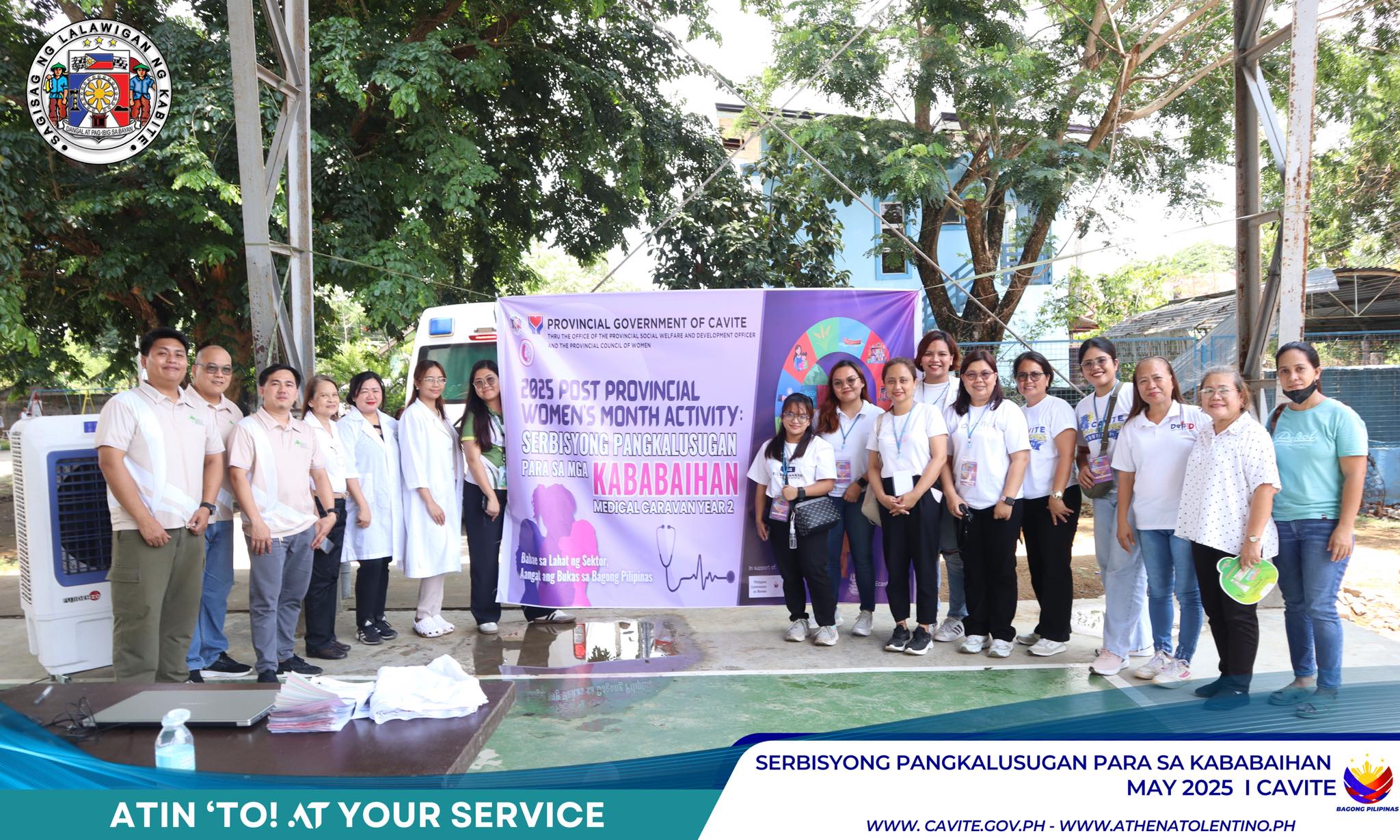As part of the post Provincial Women’s Month celebration, an activity dubbed as Serbisyong Pangkalusugan para sa Kababaihan was successfully conducted through the initiative of the Office of the Provincial Social Welfare and Development Officer (OPSWDO) in partnership with the Provincial Council for Women (PCW). The medical caravan were held on May 6 in Maragondon; May 7 in Naic; May 8 in Ternate; May 23 in Tagaytay City; and May 24 in the City of General Trias.
Thousands of women from various sectors across the province benefited from the free medical services, which included blood chemistry, electrocardiogram (ECG), chest X-ray, and eye check-up. These services were rendered by Health Bridge Medical Services, Inc.
The activity aimed to promote the importance of women’s health and well-being, providing accessible medical care and encouraging preventive health practices among women, especially those in far-flung areas.
This initiative is a testament to the continued efforts of the Provincial Government of Cavite through the OPSWDO, and the PCW, to recognize and support the vital role of women in society by ensuring that their health needs are addressed.
Through programs like these, women are empowered to take charge of their health and are reminded of their significance as pillars of strong families and communities. (OPIO)
Solidum: Fall in love with the problem, not your solutions, identify stakeholder needs
In a bid to develop more appropriate solutions tailor fitted to stakeholder needs, the Department of Science and Technology (DOST) Region 02, in partnership with academic institutions and innovation stakeholders, officially launched Hack4Resilience 2025: AI and Big Data for Disaster Risk Reduction Management today, May 21, 2025 at Mango Suites Hotel, Cauayan City, Isabela.
The initiative gathers researchers and local leaders to co-create innovative, data-driven solutions for disaster resilience in one of the country’s most hazard-prone regions.
Organized by DOST Region 02 through the DOST-ISU Smart City (DISC) TBI, Hack4Resilience opens a region-wide hackathon focused on harnessing Artificial Intelligence (AI) and Big Data to strengthen local disaster preparedness and response.
It promotes homegrown science and technology as essential tools in addressing regional challenges.
In his keynote address, DOST Secretary Dr. Renato U. Solidum Jr. emphasized the role of science and community engagement in building disaster-resilient societies.
“We need systems that reach the farthest, most disadvantaged communities—early warnings via basic phones, AI-powered forecasts for farmers, multilingual chatbots, and barangay-level dashboards that enable swift action,” he said.
“Fall in love with the problem, not your solutions, identify stakeholder needs,” he further added.
From numerous applicants, 10 teams were selected to pitch technologies addressing flood monitoring, emergency communication, evacuation analytics, and localized disaster information systems.
Each team presented before a panel of evaluators from the Office of Civil Defense (OCD) Region 02 , Department of Information and Communications Technology (DICT) Region 02 and Advanced Science and Technology Institute (DOST-ASTI). Projects will be assessed based on scientific rigor, community relevance, sustainability, and scalability.
The winning team will be given 50,000 pesos cash prize and earn an incubation opportunity through Startup THRiVE, DOST’s Technology Business Incubator hosted at ISU–Cauayan.
2nd and 3rd place will be given 30,000 pesos and 20,000 pesos, respectively.
Also present at the launch were DOST Undersecretary Engr. Sancho Mabborang, RD Virginia G. Bilgera, Dr. Nancy Bantog (DOST-CAR), DICT RD Dr. Pinky Jimenez, OCD Mr. Ronald L. Villa, ISU President Dr. Boyet Batang, CSU VP Dr. Junel B. Guzman, JCI National Executive VP Atty. Patrick Maglinao, and ISU-BIRD-C Director Dr. Betchie C. Aguinaldo.
The program offers technical mentorship, business development support, and access to funding to help bring the solution from prototype to implementation.
Hack4Resilience 2025 is not just a competition but part of a broader push toward technological sovereignty and science-based governance. Moreover, the selected innovations will be supported through LGU partnerships, incubation, and policy integration, ensuring real-world application and long-term impact.
Region 02 continues to position itself as a leader in community-centered, data-driven disaster innovation, showcasing how local expertise and digital tools can transform risk into resilience.


